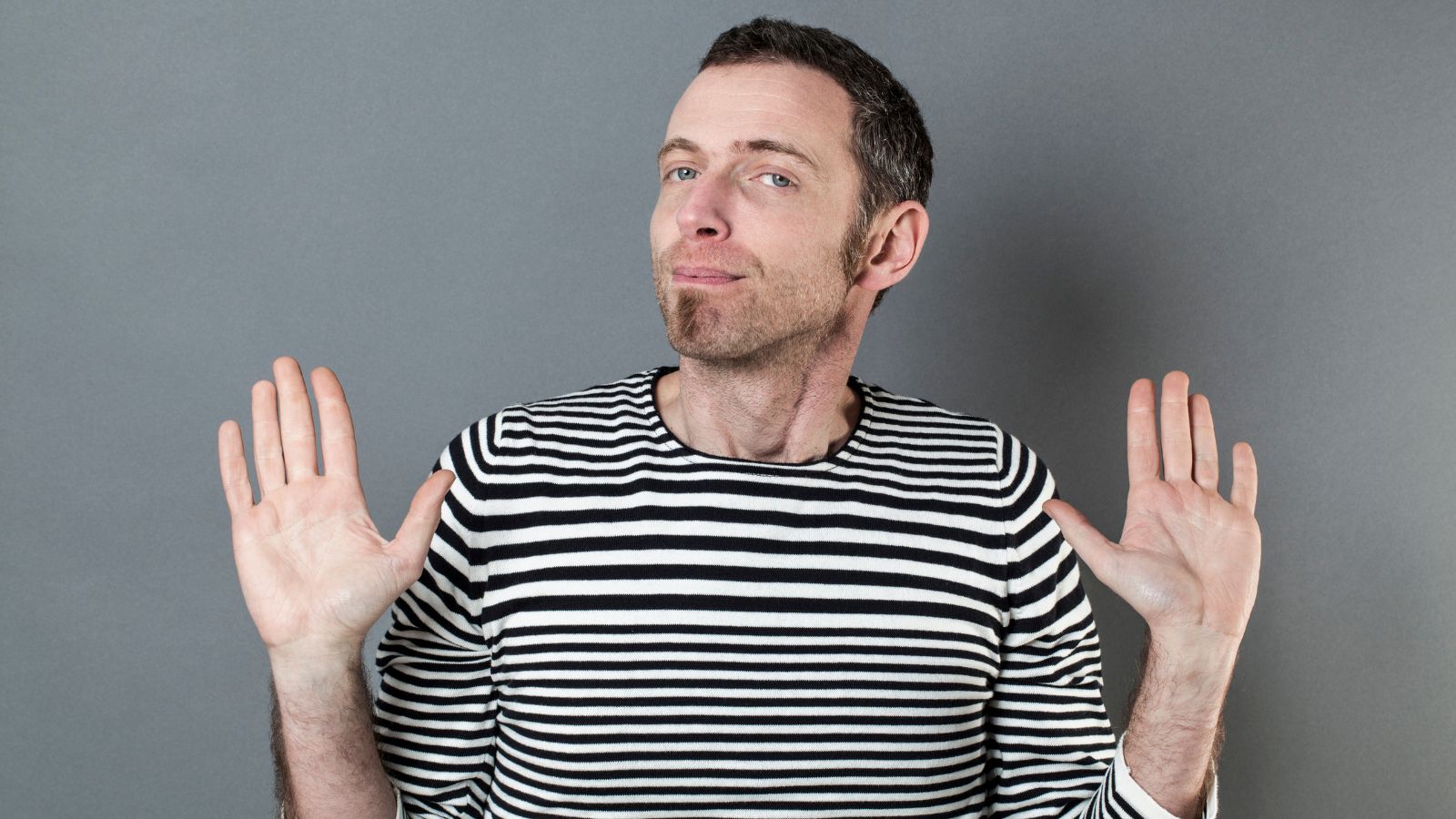Identifying someone who exhibits traits of rudeness and selfishness involves recognizing certain behavioral clues. Recognizing these clues can help in navigating interactions and relationships more effectively, ensuring one can establish boundaries and maintain healthy dynamics with others.
1. They Are Always Talking About Themselves

One of the most obvious signs of selfishness is when someone constantly talks about themselves. They may dominate conversations and interrupt others to bring the focus back to themselves. This behavior can be particularly frustrating for those around them, as it can feel like they are not being heard or valued. It’s important to remember that communication is a two-way street, and everyone deserves to have their voice heard.
2. They Only Do Things for Personal Gain

Another sign of selfishness is when someone only does things that benefit them personally. They may be willing to help others, but only if it benefits them in some way. This can be particularly problematic in group situations, as it can lead to resentment and mistrust. It’s important to be willing to contribute to the group and to put others’ needs ahead of our own at times.
3. They Are Unable to Empathize With Others

Empathy is an essential part of healthy relationships, and when someone is unable to empathize with others, it can be a clear sign of selfishness. They may dismiss others’ feelings or experiences, or they may be unable to understand why someone else is upset. This lack of empathy can be particularly damaging in close relationships, as it can lead to feelings of isolation and disconnection.
4. They Are Quick to Anger or Frustration

Selfish people may become easily frustrated or angry when things don’t go their way. They may lash out at others, blaming them for their own problems or shortcomings. This behavior can be particularly hurtful, as it can make those around them feel like they are walking on eggshells. It’s important to remember that we are all responsible for our own emotions and that taking our frustrations out on others is not acceptable.
5. They Prioritize Their Own Needs Above Others

Finally, selfish people may prioritize their own needs above others, even when it is not necessary or appropriate. They may be unwilling to compromise or make sacrifices, even when it would benefit the group or the relationship. This can lead to feelings of resentment and mistrust and can ultimately damage relationships.
6. They Are Always Late

People who are always late may seem careless or disorganized, but it can also be a sign of selfishness. They may not value other people’s time as much as their own, or they may feel that their own schedule is more important. Being chronically late can cause frustration and resentment in those around them, so it’s important to be considerate of others’ time.
7. They Refuse to Apologize

Apologizing can be difficult, but it’s an important part of taking responsibility for our actions and showing empathy for others. People who refuse to apologize may be more concerned with saving face or protecting their ego than with repairing a relationship. This can cause resentment and mistrust and can make it difficult to resolve conflicts.
8. They Never Ask For Help

Asking for help can be difficult, but it’s an important part of building relationships and relying on others. People who never ask for help may be more concerned with appearing self-sufficient than with building connections with others. This can cause others to feel like they are not needed or valued and can make it difficult to build trust and intimacy.
9. They Are Always the Victim

People who always see themselves as a victim may be more concerned with their own feelings and experiences than with understanding others’ perspectives. This can make it difficult to resolve conflicts or work through problems, as they may not be willing to take responsibility for their own actions. It’s important to remember that healthy relationships require empathy and a willingness to take responsibility for our own mistakes.
10. They Are Easily Offended

People who are easily offended may be more concerned with protecting their own feelings than with understanding others’ perspectives. They may take criticism personally or become defensive when someone disagrees with them. This can make it difficult to have open and honest communication and can cause others to feel like they are walking on eggshells.
11. Using Devices During Interaction

By prioritizing your device over the conversation, you convey that your own distractions are more important than the person in front of you. This behavior can lead to feelings of being ignored and undervalued, damaging the quality of communication and the connection with others.
12. Insensitive Remarks

Making comments that hurt or offend without thought can create discomfort and strain relationships. Failing to empathize and communicate with sensitivity suggests a self-centered approach that disregards the impact of your words on those around you.
13. Taking Credit for Others’ Work

Failing to acknowledge their role not only undermines teamwork but also shows a lack of integrity and respect for their hard work. This behavior erodes trust and can lead to strained relationships, as it implies prioritizing personal recognition over the success of the group.
14. Ignoring Boundaries

Failing to respect boundaries can make others feel disrespected and uncomfortable in your presence. This behavior reflects a lack of consideration for their feelings and autonomy, potentially damaging trust and the overall quality of your interactions.
15. Ignoring Others’ Needs

Neglecting to accommodate others’ preferences or requirements can make them feel undervalued and overlooked. This behavior suggests a self-centered approach that dismisses the importance of their feelings and creates an atmosphere of disrespect in relationships.
16. Having a fixed Mindset

Individuals with a fixed mindset believe that their behavioral flaws are unchangeable, asserting, “That’s just how I am.” If you have this attitude, it will hurt your personal growth and disregard the impact of your actions on others. The refusal to acknowledge and address behavioral flaws reflects a lack of consideration for others and a self-centered perspective.
17. Lack of Empathy in Conversations

Rude and selfish individuals may use phrases like “No offense, but __” and prioritize their validation over the feelings of others. If you have this communication style, it demonstrates a disregard for the impact of your words on others, showcasing a self-centered approach to interactions.
18. Dismissive Responses to Others’ Problems

If you respond to others’ problems by diverting attention to your own challenges rather than offering support or empathy is a sign of rudeness and selfishness. This behavior suggests a lack of genuine concern for others’ well-being, emphasizing self-centeredness over compassion.
19. Lack of Responsibility-Taking

Refusing to take responsibility for your actions and placing blame on others is a clear sign of the selfish a rude character in you. The unwillingness to acknowledge wrongdoing and the tendency to deflect responsibility indicates a lack of accountability and consideration for the impact of their behavior on others.
20. Choosing Convenience Over Consideration

If you engage in actions that prioritize personal convenience at the expense of others, such as double parking, being consistently late, or creating disruptions in public spaces, reflects a selfish mindset.
21. Attaching a lot of value to Material Acquisitions

Prioritizing the pursuit of wealth and power above interpersonal relationships is a clear sign of selfishness. Material acquisition, driven by a self-centered focus, may involve taking advantage of others to achieve personal gain. This behavior reflects a lack of empathy and a willingness to exploit others for personal benefit.
22. Sense of Entitlement

People with a sense of entitlement believe they deserve everything to go their way, showcasing a self-centered perspective. If you have this attitude, it will be challenging for you to accept unfavorable outcomes, and you may avoid taking responsibility for consequences by deflecting blame onto others.
50 Super Simple Side Hustle Ideas

50 Super Simple Side Hustle Ideas (& How to Make Them Work)
10 Frugal Lessons I Learned From Being Flat Out Broke

10 Frugal Lessons I Learned From Being Flat Out Broke
How To Make Money Without a Job

How To Make Money Without a Job
Creative Ways To Make Money

20 Easy Ways to Raise A Credit Score Fast



 Get more stories from Bento Bucks on money hacks and trending money news!
Get more stories from Bento Bucks on money hacks and trending money news!